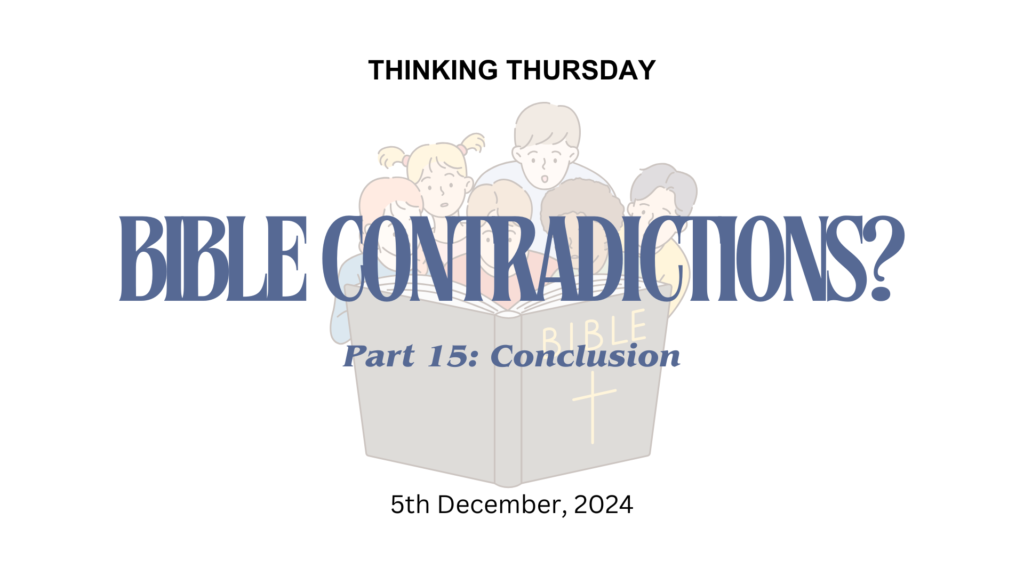When people claim that the Bible contains contradictions, it is often due to a lack of understanding of the context, timing, or purpose of the passages. Sometimes, too, people may be intentionally mishandling the Word of God, twisting Scriptures to create apparent contradictions where none truly exist. The Apostle Peter warned of this, saying, “There are some things in [Paul’s letters] that are hard to understand, which ignorant and unstable people distort, as they do the other Scriptures, to their own destruction” (2 Peter 3:16, NIV).
Taking Scriptures out of context and claiming there are contradictions overlooks the broader narrative and intent of the passages. Scripture must be interpreted in light of its context. As Paul advises, we should “rightly divide the word of truth” (2 Timothy 2:15, NKJV).
START FROM THE BEGINNING: BIBLE CONTRADICTIONS (PART 1)
THE SOURCE OF SCRIPTURES
It is important to remember that the Scriptures are inspired by one ultimate author—the Holy Spirit—who worked through various human channels to convey God’s message. As 2 Timothy 3:16-17 (ESV) states, “All Scripture is breathed out by God and profitable for teaching, for reproof, for correction, and for training in righteousness, that the man of God may be complete, equipped for every good work.” Since the Holy Spirit is the one consistent author, the Scriptures are unified and harmonious in truth.
Rather than hastily concluding that the Bible is contradictory, why not approach the author—God Himself—and ask for understanding? James 1:5 (NIV) assures us, “If any of you lacks wisdom, you should ask God, who gives generously to all without finding fault, and it will be given to you.”
Therefore, rather than focusing on supposed contradictions, let’s humbly seek God’s wisdom and trust in the reliability and truth of His Word.
For the Lord gives wisdom; from His mouth come knowledge and understanding. Proverbs 2:6 BSB
READ NEXT: A CHANGING GOD?
